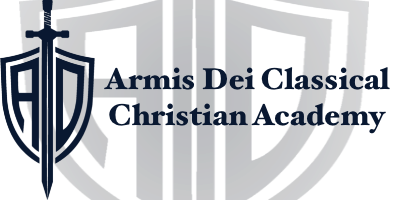Conflict Resolution Policy
Conflict Resolution Policy
We consider it a great privilege to serve families in educating their children from a Christian and classical perspective. We are committed to upholding and supporting each family’s authority in the lives of their children. This kind of relationship requires clear communication. We recognize that in this relationship there lies a great temptation to talk to others (gossip) about a specific issue or person rather than take direct action to resolve conflicts in a manner consistent with scripture. We have outlined the proper lines of communication and dealing with grievance according to the biblical principle found in Matthew 18 and James 3. We believe that Scripture teaches that conflicts should be handled discreetly and carefully, while believing and speaking the best about each individual involved. ADCCA administration and teachers will abide by these same principles in communication with parents and students.
It is understood that if any disputes arise which are not covered by this policy, the Board will decide what procedures to follow based on a parity of reasoning from those procedures established by this policy.
Students/Parents to Teachers:
All concerns about the classroom must first be presented to the teacher by the parents, or if the student is mature enough, by the student himself. Before the concern is presented, the student and/or parent should take the time to prayerfully consider the plank in his/her own eyes. They ought also to think the best of the teacher until proven otherwise. All concerns must be presented in a respectful and gentle manner. If the problem is not resolved, the parents or student may bring the concern to the headmaster. If the student brings the concern, he must have permission from his parents to do so. If there is no resolution, they may request a hearing from the ADCCA School Board.
Parents/Patrons to Administrator:
If parents or patrons have a grievance or dispute about the general operation of the school (apart from the operation of the classrooms), they may bring their concerns to the headmaster. Parents may also present concerns about an individual teachers’ behavior, rules or procedures directly to the headmaster if the matter was not resolved with the specific teacher. If there is no resolution, they may request a hearing from the ADCCA School Board. This procedure applies to board members who are acting in their capacity as parents/patrons, and not as representatives of the Board.
Volunteers to Staff/Administration:
If any volunteer has a concern about the volunteer work, he may present that concern to the staff member responsible for his oversight. If the problem is not resolved, then the concern may be presented in writing to the headmaster, followed by a meeting with him to discuss the concern. If the problem is still not resolved, the volunteer may request a hearing from the Board in writing. The headmaster is required to pass the request on to the Board.
While clear communications between school and families can break down with negative issues, they can break down with positive issues as well. Often parents will have an idea on how to improve the school, but are not sure how to share it. In this case, the same principles should be applied. A parent who has an idea about how to improve a classroom should talk to the teacher. A parent who has an idea about how to improve the school in general should talk to the administration. It is always best to communicate directly with the person primarily in authority over the issue at hand.
* This handbook does not contractually bind the school in any way.
